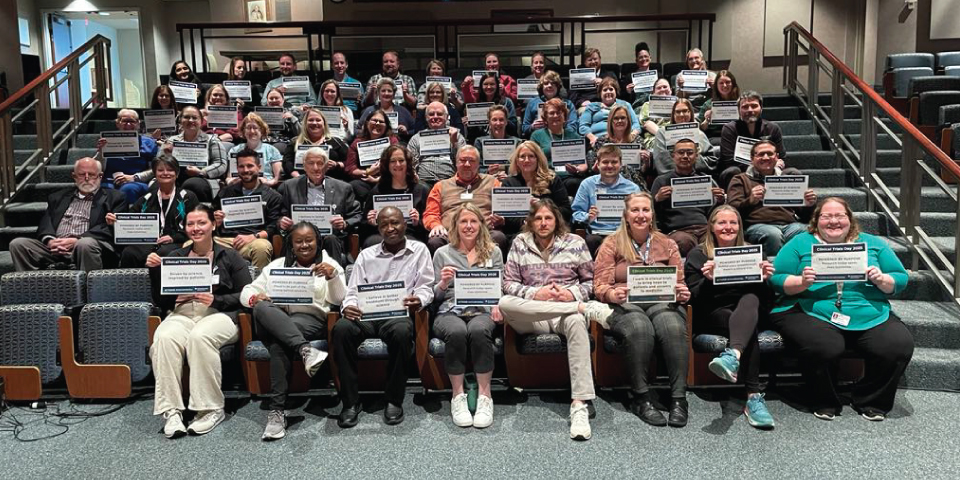While the path to working on clinical trials is not always obvious, the importance of these trials is clear.
The Association of Clinical Research Professionals (ACRP) celebrates Clinical Trials Day annually on May 20 to recognize the accomplishments related to clinical trials and the people behind them. ACRP is the only non-profit organization solely dedicated to representing, supporting, and advocating for clinical research professionals.
For Anna Wilson, an oncology clinical research coordinator based at Eau Claire Cancer Center, the importance of clinical trials is personal.
“My family, myself included, have had a string of really bad luck when it comes to being diagnosed with cancer,” Wilson said. “What I found fascinating is that every treatment we were on, started because of a clinical trial.”
Clinical trials come in many different forms. That’s why Wilson and her colleagues screen every patient who has been diagnosed with cancer for a clinical trial. They also look at patients who are progressing through and finished their treatments for different types of trials. For example, Marshfield Clinic participates in trials that look at how to guide a patient through the financial aspects of cancer.
Tahlia L. Weis, M.D., Ph.D., had a much different route to a career in health care and research. While earning her master’s in chemistry, she was recruited for her first research project who wanted her to use Raman spectroscopy for cataloguing art pieces. Dr. Weis volunteered at a number of health institutions after completing her master’s in chemistry and discovered her calling to health care.
She finished her doctorate before entering medical school where she became enamored with vascular surgery. Working with patients, pathology and the advancing technology is what drew her to that specialty.
“Engaging in clinical trials research fills a bucket for me,” said Dr. Weis, who serves as Service Line Medical Director for Cardiovascular Services. “I have a personal drive to be more than an excellent surgeon. I want to contribute to advancing my field.”
Dr. Weis is in the early stages of a clinical trial involving covered endovascular reconstruction of the aortic bifurcation (CERAB), a minimally invasive procedure providing relief for patients with aortoiliac occlusive disease. A stent graft is placed within the aorta and extends into the iliac arteries to bypass blocked areas.
She also was involved in a trial that resulted in a new treatment for patients with peripheral artery disease, which affects more than eight million people annually, who face increased risk of heart attack or stroke. The Shockwave Javelin Peripheral Intravascular Lithotripsy (IVL) Catheter uses shockwaves, instead of traditional balloon-based catheters to modify calcium and cross narrowed vessels. This technology is now available nationally, as well as at Marshfield Clinic.
“Without participating in studies that advance our field, we lose out on being able to treat the populations with the greatest evidence-based needs,” Dr. Weis said. “It’s important to deliver world-class health care in a rural environment.”
For Wilson, giving every patient hope or an opportunity to contribute to future treatments is important.
"I have had the opportunity to have meaningful interactions with each of our clinical trial patients," Wilson said. “Collaborating with the patient and the patient’s family is a wonderful privilege. Many of our patients agree to be treated on a clinical trial, because they know their participation will help future patients with a cancer diagnoses.”

